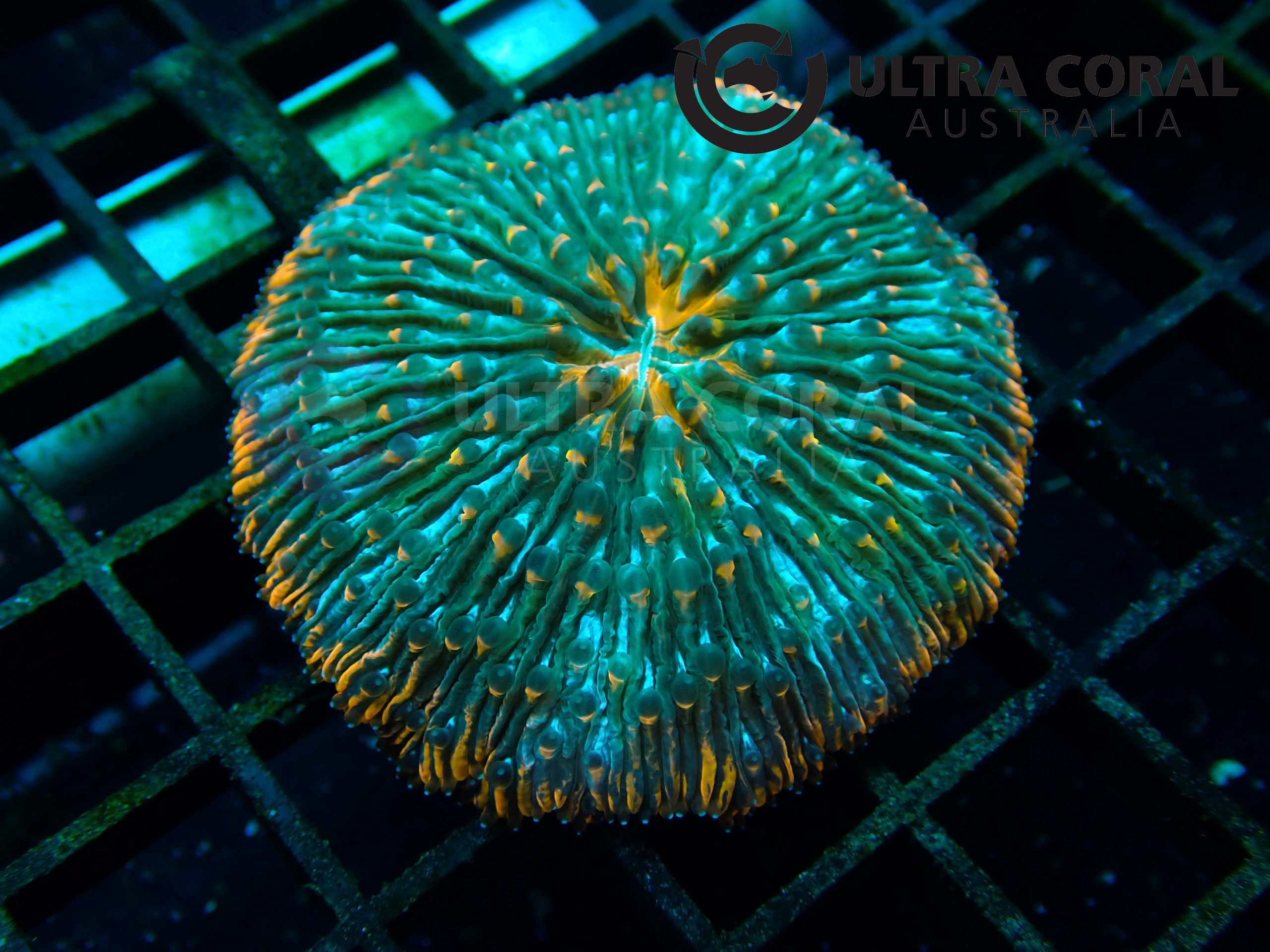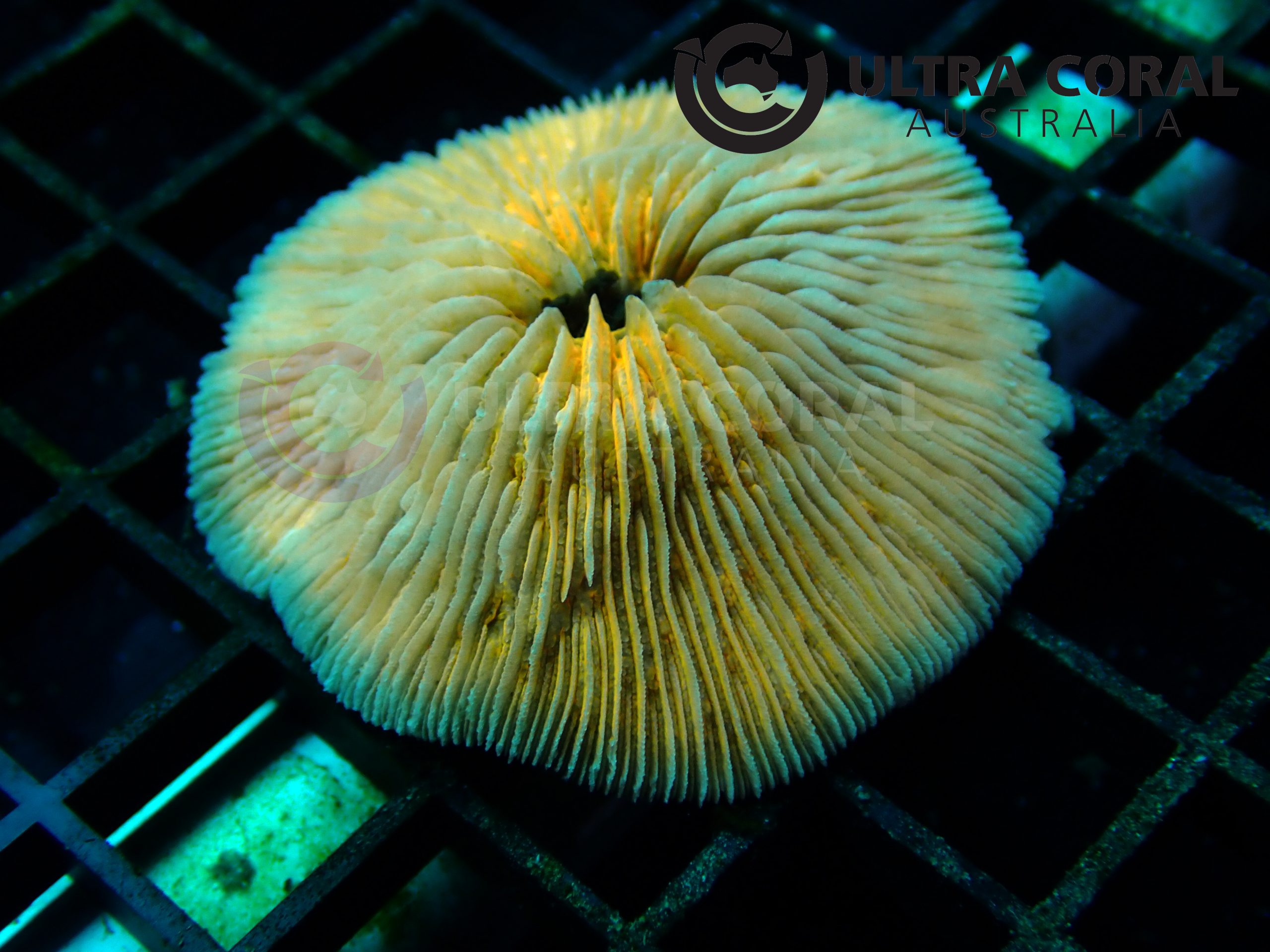Cycloseris sp.

Cycloseris, commonly called Disc Corals or Plate Corals, are mostly solitary and free living.
In the wild, they are usually restricted to soft substrates in inter-reef environments. The discs are either round or oval, with a concave undersurface.
The central mouth, which looks like a slit, is surrounded by tentacles. The polyp sits in a calcareous cup, the corallite, and only extends its tentacles to feed at night.
Cycloseris can be confused with Fungia species, but the former are free-living, even as juveniles, while the latter bear a scar (pits on the undersurface) showing where they were attached when young.
Cycloseris are also often smaller than Fungia and rarely found on reef environments.
They appear pale cream or greenish, often with white margins, but may be brightly coloured in shallow water.
Basic Water Parameters
pH
8.0 to 8.3
Salinity
34 - 36ppt
Temperature
24.0 - 26.0 Celsius
Husbandry Requirements
Lighiting
Not Found!
Flow
Not Found!
Aggressiveness
Not Found!
Acclimation Guide
- It is highly recommended to acclimate all corals to a new environment to prevent shocking corals.
- Place the corals in the water from the packing bags and slowly add the water from new environment (Dripping method is recommended).
- Use the water parameter above as a guide.
- When the vessel becomes full , replace the water with the new environment water by a small amount at a time.
- Ensure the water temperature matches with the new environment’s water.
- After the corals have spent adequate time in the acclimation water, gently place the corals to a new environment.
- It is recommended to place new corals under lower light intensity than usually required. Once corals show no signs of stress, it can be moved to higher lighting area gradually.”


